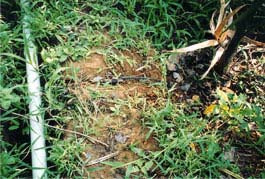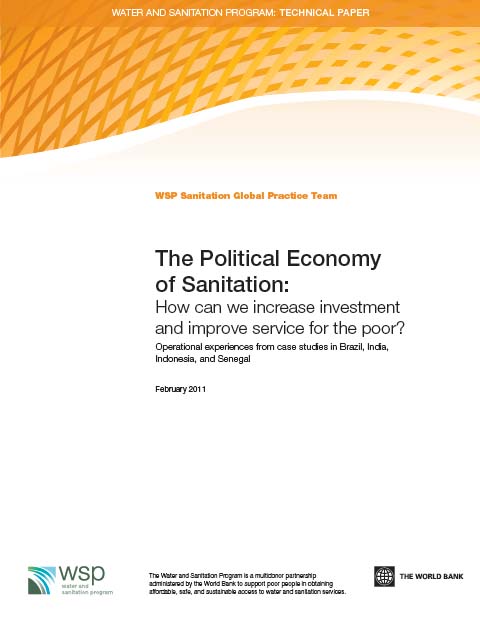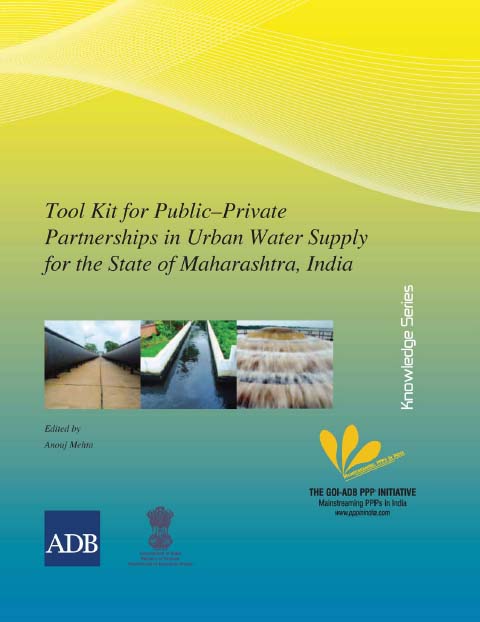/topics/sanitation
Sanitation
Toilet manure in organic farming :An article by Varanashi Research Foundation
Posted on 22 Nov, 2014 10:30 AM Human faeces and urine (toilet manure) are a serious waste disposal problem especially in areas with high human population density. At the same time they are rich in nutrients that are essential to plants.
Human faeces and urine (toilet manure) are a serious waste disposal problem especially in areas with high human population density. At the same time they are rich in nutrients that are essential to plants.
The challenges of ecological sanitation in coastal south India : A case study of Kovalam town South Chennai Tamil Nadu A presentation
Posted on 22 Nov, 2014 10:30 AMThis presentation by Sekhar Raghavan, Director, Rain Centre, Chennai, India highlights the experiences and the challenges faced by Rain Centre in introducing ecological sanitation in the coastal town of Kovalam near Chennai, Tamil Nadu, India along with Coastal and Rural development Trust (CRDT), a small non profit centre based in Kovalam .
The coastal town of Kovalam was selected as a case because of its peculiar situation with its location in a fast developing peri-urban area in proximity to Chennai city characterised by good groundwater situation, adequate land and housing facilities, but with a glaring and urgent need and demand for toilets.
Draft guidelines for taking up work relating to access to sanitation facilities by Ministry of Rural Development Request for comments by August 15 2011
Posted on 22 Nov, 2014 10:30 AMThe Ministry of Rural Development, Government of India has developed draft guidelines expanding the scope of works under schedule 1 Para 1 (ix) of Mahatma Gandhi National Rural Employment Guarantee Scheme to include access to sanitation facilities. This has been prompted by demands from several States/quarters for ensuring sanitation facilities in rural areas with the main goal of ensuring a clean environment, thereby bringing about an improvement in the general quality of life and strengthening the livelihood base.
The political economy of sanitation How can we increase investment and improve service for the poor A report by Water and Sanitation Program
Posted on 22 Nov, 2014 10:30 AM This global study attempts systematically to understand and thus help practitioners manage the political economy of pro-poor sanitation investments and service provision.
This global study attempts systematically to understand and thus help practitioners manage the political economy of pro-poor sanitation investments and service provision.
It aims to provide practical advice to multi-lateral agencies and sanitation practitioners to help them better manage stakeholder relations and effectively maneuver within the complex institutional relationships of the sanitation sector in order to enhance the design, implementation, and effectiveness of operations that provide pro-poor sanitation investments and services. The ultimate goal is to improve health and hygiene outcomes.
This study follows current approaches to political economy - interdisciplinary inquiry drawing upon social and political theory and economic principles - to understand how political actors, institutions, and economic processes influence each other. This study’s conceptual framework combines a diagnostic component with a typology of actions to help translate analytical findings into more effective support to operations and investments.
Guidelines of the Central Rural Sanitation Programme and Total Sanitation Campaign by the Department of Drinking Water and Sanitation 2011
Posted on 22 Nov, 2014 10:30 AMThis document by the Department of Drinking Water and Sanitation deals with the guidelines of the Central Rural Sanitation Programme (CRSP) and Total Sanitation Campaign (TSC). India’s first nationwide programme of rural sanitation, the CRSP was launched in 1986, while TSC was launched in 1999 with the aim of ending open defecation.
Public Private Partnerships in urban water supply for Maharashtra Tool kit by GoIADB PPP Initiative
Posted on 22 Nov, 2014 10:30 AM
The various possible PPP structures for the sector were studied, and their applicability assessed in the context of the selected sample cities. Consultations led to development of term sheets for these PPP structures, which were identified as most suitable and feasible for implementation.
The above exercise has led to development of this report, which may be considered as a tool kit designed to help decision makers decide whether a particular project might be suitable for the PPP route or not. The tool kit can, therefore, be the basis for approving a project implementation structure as part of the overall project approval methodology.
Establishment and management of community sanitary complexes in rural areas A handbook by Water and Sanitation Program
Posted on 22 Nov, 2014 10:30 AM It is intended primarily for programme implementers to help them understand the critical need for Community Sanitary Complexes and inform them of the guiding principles to be adopted while planning for these.
It is intended primarily for programme implementers to help them understand the critical need for Community Sanitary Complexes and inform them of the guiding principles to be adopted while planning for these.
India remains one of the countries wherein concerted efforts are still required to eliminate the practice of open defecation. The lack of priority given to safe confinement and disposal of human excreta poses significant health risks manifest in the sanitation challenge facing the nation today.
The provision of sanitation facilities through public toilet complexes is the most suitable option for those who cannot afford individual toilets for monetary reasons or due to lack of space, and opt for open defecation. Such complexes are a useful and valuable option at public places, markets, taxi stands, etc., where a large congregation of people takes place. The Community Sanitary Complex (CSC) fosters the cognitive development of healthy sanitation practices in the community.
Public toilets In disrepair villagers suffer Video Volunteers Article in India Unheard
Posted on 22 Nov, 2014 10:30 AM
In Kokkarapati village (TN), dilapidated public toilets cause difficulty, disease and humiliation.
Centrally sponsored schemes ARWSP and TSC have not done enough to ensure right to water and basic sanitation Article from Combat Law
Posted on 22 Nov, 2014 10:30 AM
The Universal Declaration of Human Rights (1948) recognises the inherent dignity and the equal and inalienable rights of all human beings. There are certain basic needs that are essential for a dignified life. Water and sanitation are two of these essential human needs and a clean environment is also increasingly recognised as a fundamental human right.
Ashwas process handbook A planning and execution guide for participatory surveys of household water and sanitation
Posted on 22 Nov, 2014 10:30 AMThe handbook was created as a result of several organisations expressing their interest in conducting an exercise similar to ASHWAS. The purpose of this handbook is thus to serve as a template for those wishing to carry out a similar effort in the other parts of the country.





